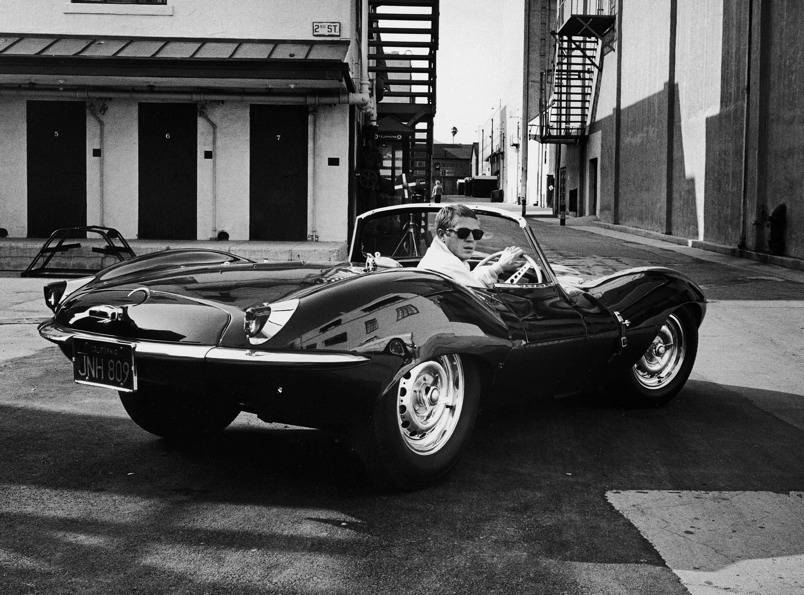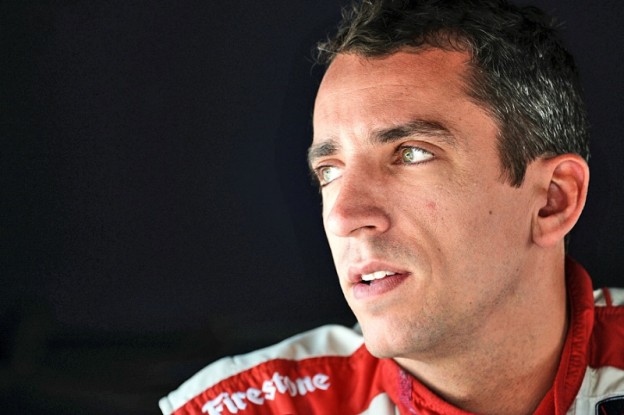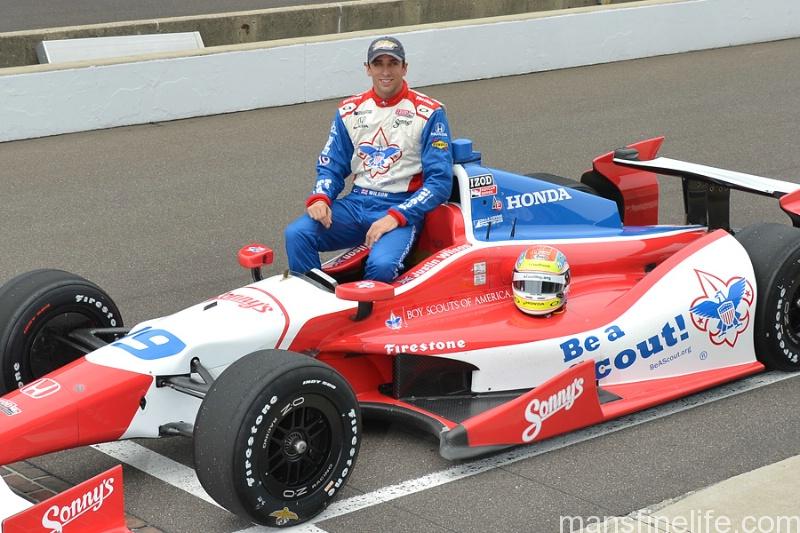Very sad news today from the world of motorsport — racing driver Justin Wilson has died after suffering severe head injuries in last Sunday’s IndyCar race at Pocono Raceway. The English racer was struck by a large piece of debris at speed when Sage Karam’s car crashed into the wall late in the race. He was airlifted to nearby Lehigh Valley Hospital directly from the track but remained in a coma and passed away this past Monday evening. He is survived by his wife Julia, his two young daughters and his younger brother Stefan, who is also a professional racer. Wilson was 37.
IndyCar’s official statement is here.
The family’s statement with their charitable wishes is here.
Justin Wilson was an extremely talented driver who competed in the highest forms of motorsport on several different teams and in several different disciplines. Along the way, he overcame numerous serious injuries to continue racing, his lifelong calling. Working his way up through karting and the lower development divisions, Wilson then won the 2001 Formula 3000 championship and then got a Formula 1 ride with Minardi in 2003. Due to his unusual height — the lanky Englishman was a very un-pilot like 6’4″ — Minardi designed the car around Wilson. After outperforming senior teammate Jos Verstappen, Wilson jumped to Jaguar for the last races of the season, scoring his first Championship points at the US Grand Prix at Indianapolis. But due to that odd F1 paradox of talented drivers with insufficient sponsorship or personal funds being passed over for less gifted pay drivers, Wilson was bounced from his F1 seat and came to America to find work. And find it he did. He got a ride in Champ Car (precursor to indyCar) in 2004 and won his first race in that series in 2005 in Toronto. Wilson finished runner up or 3rd in that championship from 2005-7.
Wilson continued to race in America when Champ Car merged with the Indy Racing League to from today’s IndyCar series in 2008. He kept winning and worked hard to improve on the alien American oval tracks but always had trouble finding a long-term drive, probably due to the lack of personal money he could bring to a team. His management group eventually resorted to selling “shares” in Wilson to support his racing career. But like a throwback to a 1960s or 70s driver, Wilson hustled and competed in all forms of the sport, carrying his helmet to the 24 Hours of Le Mans early in his career, a win at the 2012 24 Hours of Daytona after several tries, multiple Indianapolis 500 starts, V8 Supercars in Australia and even Formula E this year. Simply put, Wilson was a professional driver who could make any car go faster and improve the performance of a chassis through his experience and valuable technical feedback, particularly on road courses.
And that’s how he came to be driving for Andretti Autosport this past Sunday after being signed for the last five races of the season. It’s no coincidence that Andretti’s Honda-powered cars — and the Honda cars in IndyCar in general — had improved since Wilson started testing and then driving for them. In fact, the eventual winner of Pocono was Andretti’s Ryan Hunter-Reay, albeit under a very ominous yellow. The sad irony of Wilson’s death is that in the prior race at Mid-Ohio, Wilson had scored his best finish of the season with a standout P2 right behind Graham Rahal’s Honda-powered machine. In typical Justin Wilson fashion and showing once again why he was so beloved in the paddock, Wilson essentially refused to fight Rahal for the victory after a late restart because Rahal was competing for the championship and Wilson was not.
That sums up Justin Wilson. In a sport where friendships are not easily made between competitors, the tall, likable Englishman seemed to be a friend to everyone. Nicknamed the Gentle Giant, he had an easy smile and showed a contagious enthusiasm when discussing racing. One had only to hear him talk excitedly about this or that aspect of the sport in his distinctive Yorkshire accent to find a smile appearing on one’s face as well. It’s not rose colored glasses at a time of tragedy to say that Justin Wilson was once of the most well-liked drivers in motorsport. It’s simply a fact.
IndyCar has been dancing with the devil all season long in terms of driver safety. From the opening race in St. Petersburg, Florida when bits of the aero kits kept flying off the cars to the truly frightening multiple airborne shunts during practice and qualifying for this year’s Indy 500, it was clear that IndyCar had not quite come to grips with this new aero-modified era of Dellara chassis. Additionally, James Hinchcliffe received a life-threatening injury when a sharp piece of suspension pierced the safety cell and his leg after a crash in practice at Indy. And just this past weekend Charlie Kimball had a horror shunt at high speed that catapulted him into the catch fencing at Pocono during qualifying. Kimball was able to walk away unscathed, which left everyone marveling at how safe these new IndyCars are.
But open cockpit racing is inherently one of the most dangerous forms of motorsport and cockpit intrusion one of the leading causes of severe driver injury and mortality. We saw it with Dan Wheldon in 2011 at Las Vegas. We saw it last year with Jules Bianchi in Formula 1 at Suzuka. And now, tragically, we’ve seen it again with the untimely death of Justin Wilson at Pocono. There’s no such thing as 100% safety in motorsport. The very physics of the thing preclude that. It’s a risk all the drivers take every time they strap into the cockpit, whether it’s for testing, practice, qualifying or a race. The willingness to accept that risk while keeping your foot down is what makes a racecar driver different from you and me. So you can say Justin Wilson died doing what he loved, just like Dan Wheldon and just like Jules Bianchi. But that’s cold comfort for those of us who care about these drivers as human beings, much less their families and loved ones. The only good that can come out of tragic events like these is for the various series to learn from these accidents and double down on driver safety. Along with his life as a father and husband, his wonderful charitable work, his impressive overall contributions to motorsport and the many friendships he made, let’s hope that’s what Justin Wilson is also remembered for.


